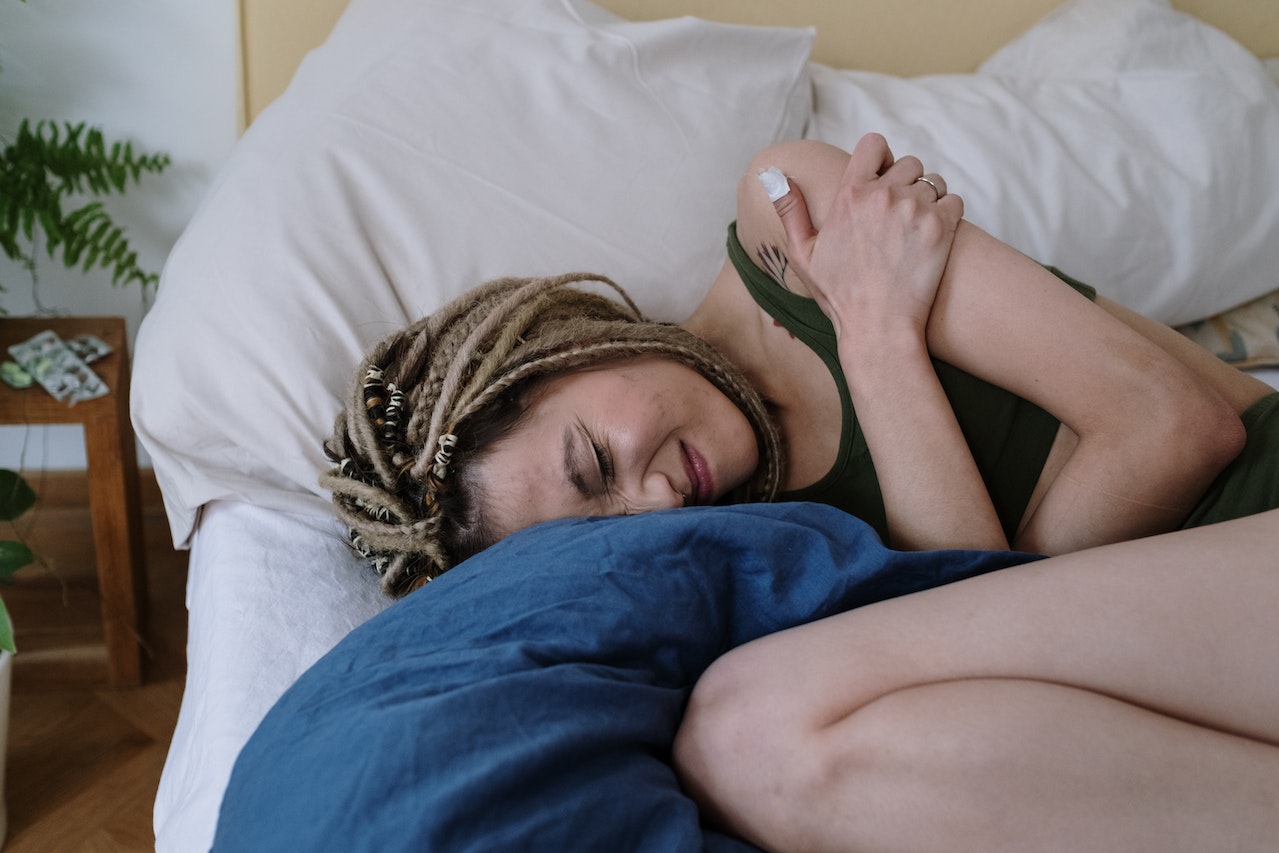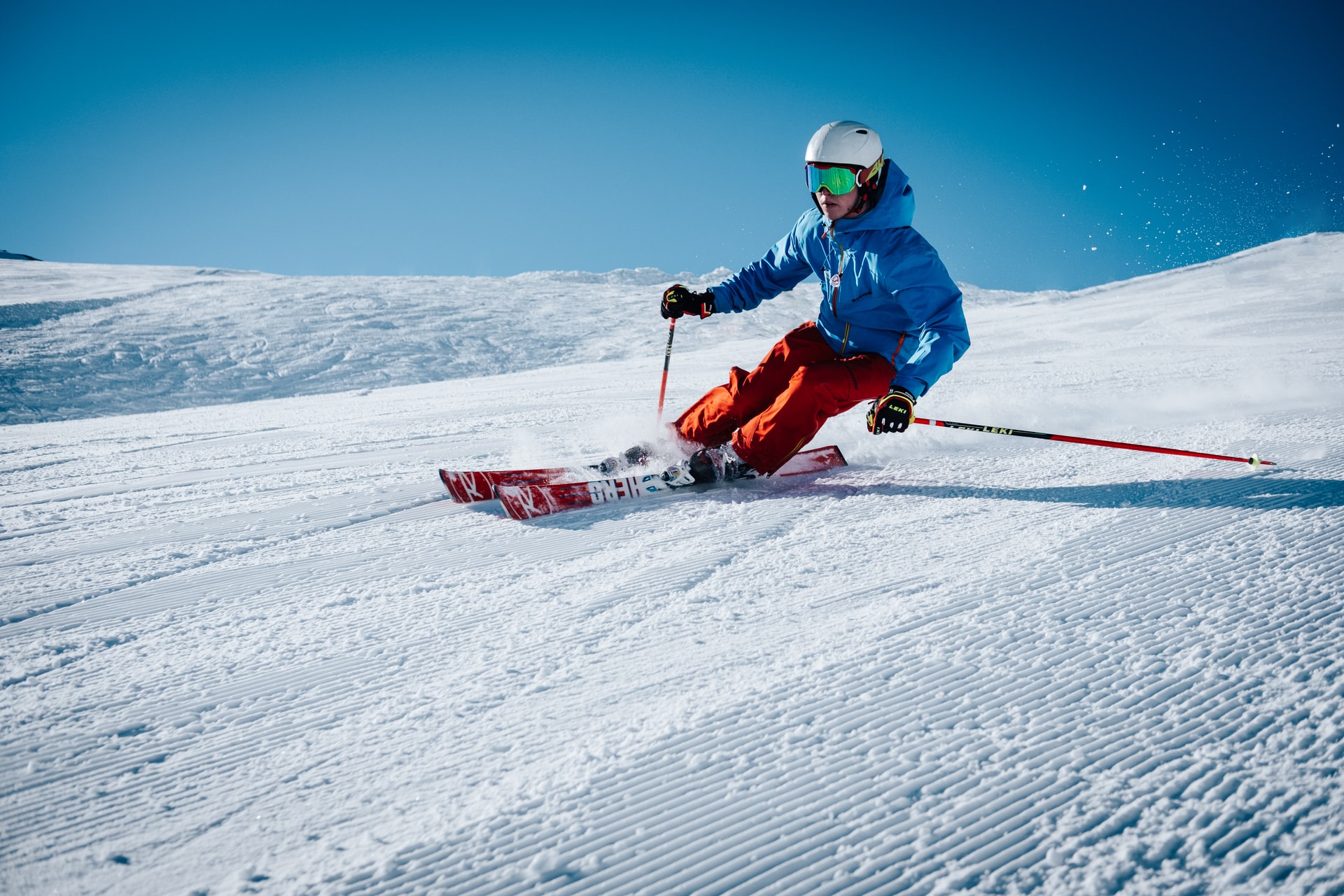Want a brighter smile but not ready for whitening strips or in-office treatments? You’re not alone. Many people want whiter teeth but prefer a more natural approach that doesn’t involve peroxide or harsh bleaching agents. The good news? There are plenty of ways to boost your smile’s radiance with just a few tweaks to your daily routine. These expert dental care hacks can help you maintain a naturally white, healthy-looking smile—no whitening required.
Start With Clean, Healthy Teeth
 You can’t have a bright smile without a clean canvas. The first and most important step is maintaining consistent oral hygiene. Brushing twice a day, flossing daily, and using mouthwash keep plaque at bay and prevent surface stains from setting in. In many areas of dentistry, professionals emphasize that routine cleanings alone can make your teeth appear noticeably brighter just by removing built-up tartar and surface discoloration. This is especially important if you’re considering dental implants, since keeping your natural teeth and gums healthy helps create the strong foundation needed for long-lasting implant success. Think of it as refreshing your teeth from the inside out.
You can’t have a bright smile without a clean canvas. The first and most important step is maintaining consistent oral hygiene. Brushing twice a day, flossing daily, and using mouthwash keep plaque at bay and prevent surface stains from setting in. In many areas of dentistry, professionals emphasize that routine cleanings alone can make your teeth appear noticeably brighter just by removing built-up tartar and surface discoloration. This is especially important if you’re considering dental implants, since keeping your natural teeth and gums healthy helps create the strong foundation needed for long-lasting implant success. Think of it as refreshing your teeth from the inside out.
Watch What You Eat (and Drink)
Your diet plays a huge role in how white your teeth look. Dark-colored beverages like coffee, red wine, and soda can stain teeth over time. Even some healthy foods, like berries and beets, have pigments that cling to enamel. While you don’t need to give them up completely, rinsing with water afterward or drinking through a straw can help limit their staining power. On the flip side, crunchy fruits and veggies like apples and carrots can help scrub away mild surface stains naturally.
Upgrade Your Brushing Routine

If you’re still using a manual toothbrush, it might be time to consider an electric one. Electric brushes often do a better job of cleaning hard-to-reach spots and removing plaque more effectively. Also, don’t underestimate the power of a good toothpaste. Look for formulas that focus on enamel strengthening and stain removal without harsh abrasives. And remember—not all “whitening” toothpastes are created equal. Some simply contain blue pigments that create the illusion of whiter teeth but don’t clean better.
Stay Hydrated to Boost Your Smile
Saliva is your mouth’s natural defense against tooth discoloration. It helps wash away food particles, neutralize acids, and maintain healthy pH levels—all of which support a whiter smile. Staying hydrated helps your body produce enough saliva to do its job effectively. Sipping water throughout the day not only keeps your mouth moist but also helps flush away stain-causing substances before they settle in. It’s a small habit with a big impact.
Chew Sugar-Free Gum After Meals
 Chewing sugar-free gum isn’t just for fresh breath—it can also help maintain a brighter smile. When you chew gum, you stimulate saliva flow, which assists in neutralizing acids and washing away food debris. Some sugar-free gums even contain ingredients like xylitol, which can help fight bacteria that cause plaque. It’s a simple step that can keep your teeth looking cleaner and feeling fresher in between brushings.
Chewing sugar-free gum isn’t just for fresh breath—it can also help maintain a brighter smile. When you chew gum, you stimulate saliva flow, which assists in neutralizing acids and washing away food debris. Some sugar-free gums even contain ingredients like xylitol, which can help fight bacteria that cause plaque. It’s a simple step that can keep your teeth looking cleaner and feeling fresher in between brushings.
Achieving a whiter smile doesn’t always require whitening treatments. With a few smart changes to your oral care routine, eating habits, and daily hydration, you can brighten your teeth naturally and maintain a fresh, clean look. These small but powerful hacks can go a long way toward enhancing your smile’s appearance—without the need for bleaching agents. So before you reach for that whitening kit, try giving your daily routine a glow-up first. Your teeth will thank you.…



 Insomnia is a prevalent issue among seniors. It’s more than just the inability to fall asleep; it can mean waking up too early or struggling to stay asleep through the night. This condition often stems from various factors, including stress, anxiety, and medical conditions. Medications for chronic ailments may also contribute to disrupted sleep patterns. Seniors might find themselves caught in a cycle of sleeplessness that affects their daily lives. Fatigue during the day can lead to irritability and diminished cognitive function. Establishing routines can help manage insomnia.
Insomnia is a prevalent issue among seniors. It’s more than just the inability to fall asleep; it can mean waking up too early or struggling to stay asleep through the night. This condition often stems from various factors, including stress, anxiety, and medical conditions. Medications for chronic ailments may also contribute to disrupted sleep patterns. Seniors might find themselves caught in a cycle of sleeplessness that affects their daily lives. Fatigue during the day can lead to irritability and diminished cognitive function. Establishing routines can help manage insomnia.



 The stage of dental development plays a crucial role in determining the right time for orthodontic treatment. Orthodontic evaluation is recommended by the American Association of Orthodontists (AAO) at around age seven, as this is when the permanent teeth start erupting. Early evaluation allows orthodontists to identify any emerging issues and plan the most suitable treatment approach. During this evaluation, orthodontists assess factors such as tooth alignment, crowding, spacing, and bite problems.
The stage of dental development plays a crucial role in determining the right time for orthodontic treatment. Orthodontic evaluation is recommended by the American Association of Orthodontists (AAO) at around age seven, as this is when the permanent teeth start erupting. Early evaluation allows orthodontists to identify any emerging issues and plan the most suitable treatment approach. During this evaluation, orthodontists assess factors such as tooth alignment, crowding, spacing, and bite problems. The severity of your child’s orthodontic condition is a significant factor in determining the timing of treatment. Some orthodontic issues, such as severe crowding or misalignment, require early intervention to prevent further complications. Other conditions may be better suited for treatment in adolescence when more permanent teeth have erupted. Orthodontists will evaluate the specific orthodontic problem your child is facing and assess the impact it may have on their oral health, speech, chewing function, and self-esteem.
The severity of your child’s orthodontic condition is a significant factor in determining the timing of treatment. Some orthodontic issues, such as severe crowding or misalignment, require early intervention to prevent further complications. Other conditions may be better suited for treatment in adolescence when more permanent teeth have erupted. Orthodontists will evaluate the specific orthodontic problem your child is facing and assess the impact it may have on their oral health, speech, chewing function, and self-esteem.
 The first thing you can do to prevent hemorrhoid flare-ups is to change your diet. Eating a high-fiber diet can help reduce the chances of developing Hemorrhoids, as it helps keep regular. Consuming foods like beans, berries, citrus fruits, apples, and whole grains will help ensure you get the recommended amount of dietary fiber each day. Additionally, drinking plenty of water can help keep your stools easy to pass. Which is why you should think of adding more fiber and water to your diet if you are prone to hemorrhoid flare-ups.
The first thing you can do to prevent hemorrhoid flare-ups is to change your diet. Eating a high-fiber diet can help reduce the chances of developing Hemorrhoids, as it helps keep regular. Consuming foods like beans, berries, citrus fruits, apples, and whole grains will help ensure you get the recommended amount of dietary fiber each day. Additionally, drinking plenty of water can help keep your stools easy to pass. Which is why you should think of adding more fiber and water to your diet if you are prone to hemorrhoid flare-ups.
 One of the worst things you can do for your health is to eat too many low-quality
One of the worst things you can do for your health is to eat too many low-quality  Another common habit that can lead to
Another common habit that can lead to  You might think you don’t need to exercise if you’re not trying to lose weight, but that’s not true. Exercise is essential for good health, especially if trying to prevent obesity. Regular physical activity can aid you in maintaining a healthy weight and reduce your risk of developing severe health problems like cardiac disease and diabetes. If you’re not getting enough exercise, make it a priority to get moving more every day. Simple exercises like walking, biking, and swimming are all great options.
You might think you don’t need to exercise if you’re not trying to lose weight, but that’s not true. Exercise is essential for good health, especially if trying to prevent obesity. Regular physical activity can aid you in maintaining a healthy weight and reduce your risk of developing severe health problems like cardiac disease and diabetes. If you’re not getting enough exercise, make it a priority to get moving more every day. Simple exercises like walking, biking, and swimming are all great options.
 It doesn’t matter where you live; you are respected if you are a healthcare professional. People trust doctors and other medical professionals to care for them when they are sick or injured. This trust is hard-earned, and it should be taken seriously. Remember that it comes with great sacrifice and responsibility, but the satisfaction you will get from helping others is worth it.
It doesn’t matter where you live; you are respected if you are a healthcare professional. People trust doctors and other medical professionals to care for them when they are sick or injured. This trust is hard-earned, and it should be taken seriously. Remember that it comes with great sacrifice and responsibility, but the satisfaction you will get from helping others is worth it. While money is not the only reason to become a
While money is not the only reason to become a 

 Dr. Blundell went on to perform more transfusions and also develop better tools for the procedure. The first whole-body transfusion was performed in 1840, but even then many people died because the composition of the blood was not understood. Transfusions were therefore safer, but they had to be done with blood flowing directly from the donor to the recipient.
Dr. Blundell went on to perform more transfusions and also develop better tools for the procedure. The first whole-body transfusion was performed in 1840, but even then many people died because the composition of the blood was not understood. Transfusions were therefore safer, but they had to be done with blood flowing directly from the donor to the recipient. Once the blood has completely left the donor’s body, it is labeled, stored, and eventually transported. The tubes are then sent to a laboratory for testing. The blood is sorted and if found to be free of disease, stored in large refrigerated containers. Platelets, on the other hand, can simply be stored at room temperature and must be used within 5 days. Then, if necessary, the blood is taken to a hospital. From there, it is made available to a recipient with a compatible blood type.
Once the blood has completely left the donor’s body, it is labeled, stored, and eventually transported. The tubes are then sent to a laboratory for testing. The blood is sorted and if found to be free of disease, stored in large refrigerated containers. Platelets, on the other hand, can simply be stored at room temperature and must be used within 5 days. Then, if necessary, the blood is taken to a hospital. From there, it is made available to a recipient with a compatible blood type.
 After an accident, you may get out of the car with your wide eyes and shaking limbs. This response to the rush is completely normal. Your body has just released a fantastic amount of adrenaline into your bloodstream, which can help you cope with the current situation. The entire scene may seem like a dream to you at first. To deal with your shock, the ideal thing to do is to sit back and allow yourself to recover. You may still be in shock weeks or days later, it depends on the person and the situation.
After an accident, you may get out of the car with your wide eyes and shaking limbs. This response to the rush is completely normal. Your body has just released a fantastic amount of adrenaline into your bloodstream, which can help you cope with the current situation. The entire scene may seem like a dream to you at first. To deal with your shock, the ideal thing to do is to sit back and allow yourself to recover. You may still be in shock weeks or days later, it depends on the person and the situation. No matter how fatal or minor the injuries are, those are needed to be examined by professionals. Go to the hospital and have the doctors examine you thoroughly. Ask for a copy of the information so you know exactly what you are facing as you continue your recovery and treatment. Talk to your loved ones as the problem slows down in the hospital. You may need
No matter how fatal or minor the injuries are, those are needed to be examined by professionals. Go to the hospital and have the doctors examine you thoroughly. Ask for a copy of the information so you know exactly what you are facing as you continue your recovery and treatment. Talk to your loved ones as the problem slows down in the hospital. You may need

 The claims of cancer-related benefits of broccoli are much better than the “mixed” claims. However, everything is interesting. There are enough supportive signs to make further research worthwhile. There are many possible explanations for why many studies show that cruciferous vegetables reduce cancer risk, while others do not. People who eat a lot of cruciferous vegetables may be happy to maintain other healthy habits as well. Another possibility is that the benefit applies only to people who have a specific gene or genes throughout their bodies.
The claims of cancer-related benefits of broccoli are much better than the “mixed” claims. However, everything is interesting. There are enough supportive signs to make further research worthwhile. There are many possible explanations for why many studies show that cruciferous vegetables reduce cancer risk, while others do not. People who eat a lot of cruciferous vegetables may be happy to maintain other healthy habits as well. Another possibility is that the benefit applies only to people who have a specific gene or genes throughout their bodies.

 It can be troublesome to reduce activities alone. This element is where your method of assistance comes into play. You may not be able to quit thinking about medical malpractice, or perhaps the healthcare provider who made the medical error. A support system can help you talk about the loss of your loved one. Talk to them, and ask for support if you need it. Get professional support if you think you need it. When the prosecutions no longer disturb you, you can begin to reflect a medical malpractice claim.
It can be troublesome to reduce activities alone. This element is where your method of assistance comes into play. You may not be able to quit thinking about medical malpractice, or perhaps the healthcare provider who made the medical error. A support system can help you talk about the loss of your loved one. Talk to them, and ask for support if you need it. Get professional support if you think you need it. When the prosecutions no longer disturb you, you can begin to reflect a medical malpractice claim.

 At the minimum, please speak with your child about what will take place, what they’re expected to perform, and why they’re engaging. If your kid has some comfortable apparatus such as some favorite cuddly toy — think about making it accessible for them.
At the minimum, please speak with your child about what will take place, what they’re expected to perform, and why they’re engaging. If your kid has some comfortable apparatus such as some favorite cuddly toy — think about making it accessible for them.

 Anyone experiencing baldness should ask for a blood test to test for iron deficiency. The absence of iron may result in tiredness and baldness. Eating a balanced diet packed with iron can help, but people with low levels might need extra supplements to keep a wholesome degree of iron in their blood. Both hyperthyroidism and hypothyroidism can lead to female and male baldness. These ailments may hasten the conversion of testosterone into DHT, which strikes hair to the scalp and hurts hair follicles. A simple blood test may determine if a thyroid disease might be an element in your baldness.
Anyone experiencing baldness should ask for a blood test to test for iron deficiency. The absence of iron may result in tiredness and baldness. Eating a balanced diet packed with iron can help, but people with low levels might need extra supplements to keep a wholesome degree of iron in their blood. Both hyperthyroidism and hypothyroidism can lead to female and male baldness. These ailments may hasten the conversion of testosterone into DHT, which strikes hair to the scalp and hurts hair follicles. A simple blood test may determine if a thyroid disease might be an element in your baldness.



 The CBD has
The CBD has  CBD chocolate bars are perhaps the most popular CBD foods because they are delicious and have a double health benefit. Along with all the benefits of CBD, this makes CBD pubs one of the best and hottest CBD food products. Both CBD and chocolate contain anandamide, a neurotransmitter in the body. Anandamide plays an important role in motivation, pleasure, and desire. This neurotransmitter also inhibits pain and inflammation in the body. Like CBD bars, this honey has a double health benefit that should not be overlooked. The honey blends so well with CBD oil that its flavor is improved and can be taken more easily. You can choose CBD honey and put it in drinks like tea.
CBD chocolate bars are perhaps the most popular CBD foods because they are delicious and have a double health benefit. Along with all the benefits of CBD, this makes CBD pubs one of the best and hottest CBD food products. Both CBD and chocolate contain anandamide, a neurotransmitter in the body. Anandamide plays an important role in motivation, pleasure, and desire. This neurotransmitter also inhibits pain and inflammation in the body. Like CBD bars, this honey has a double health benefit that should not be overlooked. The honey blends so well with CBD oil that its flavor is improved and can be taken more easily. You can choose CBD honey and put it in drinks like tea. CBD gums are perfect for you if you like to bring back childhood memories of sweets. These candies come in many different colors and flavors, such as cherry, carrot, and watermelon, so you won’t get bored with just one taste. CBD gums offer a continuous discharge of CBD for several hours so that the consequences do not wear off quickly. Homemade CBD brownies are the best because you need to include or leave out the parts you don’t need and manage the amount of CBD you use. It follows that only a few drops of the solution could lift your spirits. Homemade CBD foods offer quick and very convenient relief from pain and inflammation, especially for chronic diseases.…
CBD gums are perfect for you if you like to bring back childhood memories of sweets. These candies come in many different colors and flavors, such as cherry, carrot, and watermelon, so you won’t get bored with just one taste. CBD gums offer a continuous discharge of CBD for several hours so that the consequences do not wear off quickly. Homemade CBD brownies are the best because you need to include or leave out the parts you don’t need and manage the amount of CBD you use. It follows that only a few drops of the solution could lift your spirits. Homemade CBD foods offer quick and very convenient relief from pain and inflammation, especially for chronic diseases.…



 Regardless of whether it isn’t snowing out and your textured
Regardless of whether it isn’t snowing out and your textured  In the function, the climate isn’t helpful for a walk; you will discover a collection of approaches to make your fuzzy companion move. Utilizing a model, a secret base meeting or finding the stowaway may enable your pet to complete day by day move estimations consistently. More noteworthy calorie should keep up the body warmth, alongside a less dynamic way of life, can rapidly change your pet’s standing concerning its weight. Being overweight doesn’t have significance to the pet’s prosperity.
In the function, the climate isn’t helpful for a walk; you will discover a collection of approaches to make your fuzzy companion move. Utilizing a model, a secret base meeting or finding the stowaway may enable your pet to complete day by day move estimations consistently. More noteworthy calorie should keep up the body warmth, alongside a less dynamic way of life, can rapidly change your pet’s standing concerning its weight. Being overweight doesn’t have significance to the pet’s prosperity.


 Swelling can be acute, and the wounded area its environment will continue to swell a day or two following the effect. Rush is the main matter to promote
Swelling can be acute, and the wounded area its environment will continue to swell a day or two following the effect. Rush is the main matter to promote 
 The activity of fishing includes moving virtually every section of the human body. The exertion to find fish out of water involves the arms, back, shoulders, heart, and thighs. Whatever happens to the entire body’s muscles is more or less like a gym rat onto a normal workout session. Many sportspeople and athletes get regular bodies ready by increasing body strength in prep for the big catch.
The activity of fishing includes moving virtually every section of the human body. The exertion to find fish out of water involves the arms, back, shoulders, heart, and thighs. Whatever happens to the entire body’s muscles is more or less like a gym rat onto a normal workout session. Many sportspeople and athletes get regular bodies ready by increasing body strength in prep for the big catch. The game of balance involving you and a catfish to deliver it inside a kayak requires some amazing maneuvers. Your core muscles need to be strong to control the sort of flexibility you wish to tame a catfish. Every time you go fishing, then all creatures add a hyperlink for your own life. Yonder, the trees create stability by glancing in the distance. Locating the natural breeze pass and fresh air has lots of health benefits.
The game of balance involving you and a catfish to deliver it inside a kayak requires some amazing maneuvers. Your core muscles need to be strong to control the sort of flexibility you wish to tame a catfish. Every time you go fishing, then all creatures add a hyperlink for your own life. Yonder, the trees create stability by glancing in the distance. Locating the natural breeze pass and fresh air has lots of health benefits.
 Those who suffer from bowel disorders, food intolerance and obesity need to locate the info and get help from nutritionists to manage their problems. Many women and men have a propensity to handle by staying and dieting off food. Nevertheless, this can be unhealthy and can harm your body. Before advising you, an expert nutritionist and dietitian will produce the assessments that the approach to shed weight and, for example, indicator or your BMI.
Those who suffer from bowel disorders, food intolerance and obesity need to locate the info and get help from nutritionists to manage their problems. Many women and men have a propensity to handle by staying and dieting off food. Nevertheless, this can be unhealthy and can harm your body. Before advising you, an expert nutritionist and dietitian will produce the assessments that the approach to shed weight and, for example, indicator or your BMI.




 Depending on the nutritional value, there is vitamin K along with proportions of vitamin A in celery. Apart from the fact that we are rich in vitamins such as vitamin C, vitamin B-2, and B-6, it also provides us potassium, manganese, folate. Celery contains exactly the amount of phytonutrients that nutritionists take on the phone. This suggests that this chemical has excellent antioxidant properties.
Depending on the nutritional value, there is vitamin K along with proportions of vitamin A in celery. Apart from the fact that we are rich in vitamins such as vitamin C, vitamin B-2, and B-6, it also provides us potassium, manganese, folate. Celery contains exactly the amount of phytonutrients that nutritionists take on the phone. This suggests that this chemical has excellent antioxidant properties.





